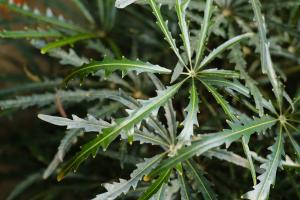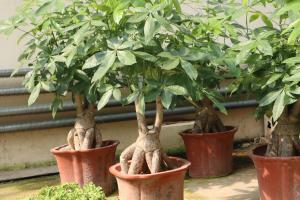Do Acacia Trees Take Nutrients from Other Plants?
Acacia trees are known for their unique ability to form symbiotic relationships with ants and defend themselves against herbivores. However, there is still much debate over whether or not these trees are parasitic and take nutrients from other nearby plants. In this article, we will explore the science behind this theory and determine whether or not acacia trees are truly parasitic.
The Debate over Acacia Trees and Nutrient Absorption
The idea that acacia trees take nutrients from other plants is not a new one. In fact, this theory has been around for hundreds of years. However, the scientific community is divided on the matter. Some believe that acacia trees are truly parasitic and take nutrients from their neighbors, while others maintain that the trees simply have a larger root system that allows them to absorb more nutrients from the soil.
One of the main arguments for the parasitic theory is the fact that certain species of acacia trees have been observed growing extremely close to other plants, often towering over them. This could indicate that the acacia trees are stealing nutrients and water from their neighbors. However, some experts counter this argument by pointing out that the acacia tree's extensive root system could simply be reaching further into the soil to gather more nutrients.
Scientific Studies on Acacia Trees and Nutrient Absorption
Several scientific studies have been conducted to determine whether or not acacia trees are parasitic. One such study was conducted in the African savanna, where acacia trees are commonly found growing alongside grasses and other plants. The study found that the acacia trees did not significantly affect the growth of the surrounding plants, indicating that they were not taking nutrients from their neighbors.
Other studies have focused on the relationship between acacia trees and mycorrhizal fungi. These beneficial fungi form a symbiotic relationship with many plants, including acacia trees. The fungi help the plant absorb nutrients from the soil, while the plant provides the fungi with carbohydrates. Some experts believe that the mycorrhizal fungi could be the reason why acacia trees appear to be parasitic. The trees may be receiving nutrients from the fungi that were originally acquired by the fungi through a different plant.
The Final Verdict
After examining the evidence, it is clear that the debate over whether or not acacia trees are parasitic is far from settled. While some studies indicate that the trees are not stealing nutrients from their neighbors, others suggest that there may be more to the story. However, it is worth noting that even if the trees are parasitic, they still provide important benefits to their ecosystem. The trees offer shelter and food to a diverse range of animals, and their nutrient absorption abilities may contribute to the overall health of the ecosystem as a whole.
In conclusion, while the science behind acacia tree nutrient absorption is still up for debate, it is clear that these trees play an important role in their ecosystem. Whether they are parasitic or not, we can appreciate the unique abilities of these remarkable trees and continue to learn from them as we study the natural world around us.

 how many times do yo...
how many times do yo... how many planted tre...
how many planted tre... how many pine trees ...
how many pine trees ... how many pecan trees...
how many pecan trees... how many plants comp...
how many plants comp... how many plants can ...
how many plants can ... how many plants and ...
how many plants and ... how many pepper plan...
how many pepper plan...
































